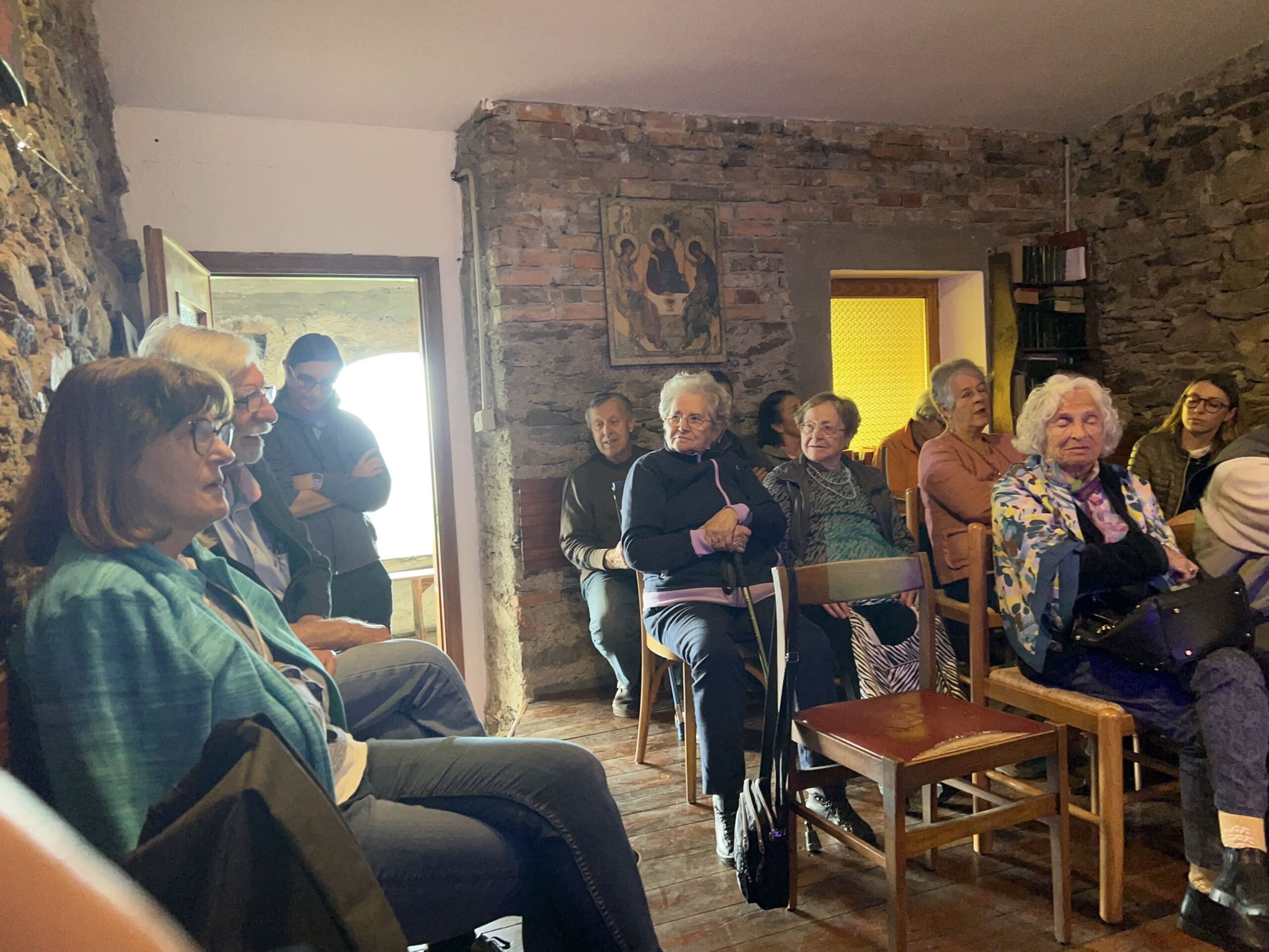The activities outlined in work package 9, “Increasing the awareness and knowledge of local and vulnerable communities about disinformation campaigns, vectors, and actors at the national and European level,” consist of debates aimed at raising awareness and understanding of disinformation among these communities. In this context, a debate was held on May 25th in collaboration with a grassroots organization in Lessolo, a small municipality in the rural area of Canavese, to discuss the topic of misinformation surrounding the criminalization of migrant agricultural workers in Italy.
The main goal of the organization, La Fraternità di Lessolo is to host detainees nearing the end of their sentences to promote better reintegration. Over the years, the rotation of detainees and their life stories has fostered a strong understanding of the most common issues they face. The characteristics of the target group, along with the rural location of the Canavese area, are key aspects of vulnerability identified within the project.
The debate was attended by the Ivrea Detainee Guarantor, the mayor, educators, host members, and individuals nearing the end of their sentences who are housed by the association.
The organisation involved mainly elderly people and the debate targeted them, as one of the groups more prone to misinformation. The debate was led by Professor Valeria Ferraris, a sociologist from UNITO, and Simona Guida from AMAPOLA. The meeting was moderated by Professor Davide Petrini, a criminal law jurist.
The debate was stimulated with some data on misinformation and disinformation regarding the criminalization of migrants in the Italian media. Then, some data regarding the presence of migrant labour in the Italian primary sector was shared:
- According to INPS statistical sources (2020), 29.3% of the working days in agriculture are attributable to non-Italian populations. Other union sources report 31.7% in 2023. These data might be distorted by the influence of undeclared work and fictitious registrations.
- In 2021, around 230,000 workers were employed irregularly in the primary sector (over 1/4 of the total workers in the sector), largely concentrated in dependent work, which includes a significant portion of the non-resident (migrant) population employed in agriculture.
- The female component is also largely involved, with an estimated 55,000 women working in irregular conditions.
The discussion continued regarding the objective data on the exploitation of migrant workers in agriculture:
- In Italy, labour exploitation in agriculture is an endemic phenomenon.
- In Italy, women suffer triple exploitation: labour exploitation, due to the conditions in which they work; wage exploitation, because even among “exploited”; women’s pay is lower than men’s; and finally, sexual and physical exploitation.
- The “Caporalato” (illegal hiring and exploitation of workers).
Delving into the topic, the VI Report on Agro-Mafia and Labor Exploitation by FLAI – CGIL (Placido Rizzotto Observatory) highlights the evolution of labour exploitation in agri-food production chains. The predominant production model is that of illicit contracting and subcontracting, as an evolution of illicit labour intermediation. Issues assumed in the country of origin take on a transnational form: slavery, colonialism, agrarian reforms (access to land and production factors), models of family farming production, specialisation (e.g., grape pruning, dairy supply chain, etc.). Additionally, the report underscores the issues of grey labour and the inadequate valorisation of agricultural products. Regarding issues specifically related to the criminalization of migrants in the media, starting from the formation of informal settlements (often compared to ghettos in major cities), according to the analysis “Housing conditions of migrants working in the agri-food sector”; which correlates some important data on agricultural work and the housing system (ANCI and Min. Lav. 2022), it is evident that there is no direct correspondence between the presence of workers in certain territories and the presence of informal settlements. For example, Piedmont appears to be the region with the highest number of municipalities reporting stable and/or seasonal presence of migrant workers in the primary sector and is also the region with the highest number of municipalities with formal settlements. It is noted that in the majority of cases, these are dwellings attributable to apartments within the national reception network (44%), Extraordinary Reception Centers (CAS) (10.3%), or apartments provided by third sector organizations/associations/volunteering (14%). Only a minimal portion (about 20%) of formal accommodations are temporary and therefore host seasonal workers who move according to the crop cycle.

During the course of the discussion, it became clear how stereotypes and prejudices tend to drive the perceptions of elderly people with respect to migrants. Although the group was certainly a more informed and attentive group than average it became evident how poor information about migrants and work in agriculture greatly influenced perceptions. A need has arisen from the participants for more information and credible sources on the level of labour exploitation in the production of the food available in the market.
The debate concluded by broadening the discussion to the European level, examining tools to combat the exploitation of agricultural labour in Italy and promoting the activation of critical and creative capacities to counter the misinformation on the criminalisation of migrant workers.
At the meeting, 27 people attended, including 17 women and 10 men, all Italians registered on the attendance sheet
Click here to download the materials.
Cofinanziato dall’Unione europea. I punti di vista e le opinioni espresse sono tuttavia esclusivamente quelli degli autori e non riflettono necessariamente quelli dell’Unione europea o dell’Agenzia esecutiva europea per l’istruzione e la cultura (EACEA). Né l’Unione Europea né l’autorità che concede il finanziamento possono essere ritenute responsabili.


